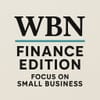
Special Series: Explaining The Blockchain
When most people think of blockchain, they think of cryptocurrency. But slowly, globally, blockchain is becoming something far more meaningful: a platform for public trust.
Imagine a tool that allows citizens, not just governments or donors, to directly fund and track the development of roads, schools, clean water systems, and housing. That tool already exists. It’s called a blockchain, and it's changing how we think about public finance.
In traditional government funding, projects are financed through taxes, foreign aid, or government bonds. But the process is slow, opaque, and vulnerable to corruption. Citizens are often left wondering where their money went, or why promised projects never materialized.
Blockchain turns this system inside out.
Here are some real-world examples happening now:
1. California DMV – Digital Vehicle Titles
The California Department of Motor Vehicles partnered with tech firms to digitize over 42 million car titles using blockchain technology. This move aims to combat fraud and streamline the vehicle title transfer process, enhancing efficiency and security. Reuters
2. West Virginia & Utah – Blockchain-Based Voting
West Virginia and Utah have piloted blockchain-based mobile voting platforms to facilitate secure and accessible voting for overseas military personnel and voters with disabilities. These initiatives aim to increase voter participation and ensure the integrity of the electoral process. Wikipedia+2Wikipedia+2The New Yorker+2
3. Homeland Security – Supply Chain Transparency
The Department of Homeland Security is exploring blockchain applications to enhance supply chain visibility, aiming to combat the distribution of counterfeit products and improve the delivery of services. U.S. Department of Homeland Security
4. Public Financial Management – Blockchain for Transparency
Various federal agencies are assessing blockchain's potential to improve public financial management by providing transparent and tamper-proof records, thereby enhancing accountability and reducing fraud. Reuters+1Chainlink Blog+1
Using tokenized digital bonds, governments or communities can raise capital from their citizens or from global backers—instantly and transparently. Funds are locked into smart contracts, which only release money as real-world milestones are met. Want to build 100 units of affordable housing? Funds won’t be released until land is cleared, materials are purchased, and construction is verified—step by step, in the open.
This model does what traditional bonds promise, but rarely deliver: direct accountability. It empowers the public to see, verify, and engage in the funding and progress of their own cities.
For humanitarian projects, like solar grids in off-grid villages or clean water infrastructure in drought zones, this is revolutionary. A donor in Cape Town or Toronto can fund a school in Uganda and track every brick laid. A community can crowdsource a health clinic, knowing funds can't be stolen or misused.
Even in disaster relief, blockchain offers stability. Smart contracts ensure that emergency funds reach victims, not middlemen.
And yes, this same infrastructure is now being used in medicine. In our next feature, we’ll show how blockchain is not just funding buildings but biomedical breakthroughs, giving scientists globally the capital to cure, innovate, and lead on the global stage. We will examine this exciting new opportunity in the next article.
Read the explanation of crypto, meme coins, and tokens here.
Tags: #Blockchain, #Public Projects, #Smart Contracts, #Humanitarian Causes, #Digital Bonds, #Transparent Funding
Wendy Huffman is the Editor of WBN News Nashville and Africa Edition, where she brings the fun back to journalism—covering local buzz, business insight, and some serious subjects in between. Her role with the Africa Edition grew from her deep commitment to the continent through LetsMakeTheDifference.org, the international nonprofit she founded to empower and uplift underserved communities.
She welcomes aspiring writers and passionate voices to join the contributor community and help shape stories that matter.
Connect with Wendy on Linkedin.com/in/wendyhuffman
Sources: Ethereum Foundation: Smart Contracts Explained, World Bank: Blockchain for Development, Coindesk: Blockchain and Public Infrastructure, Tech CEOs Africa: Blockchain in Humanitarian Funding





